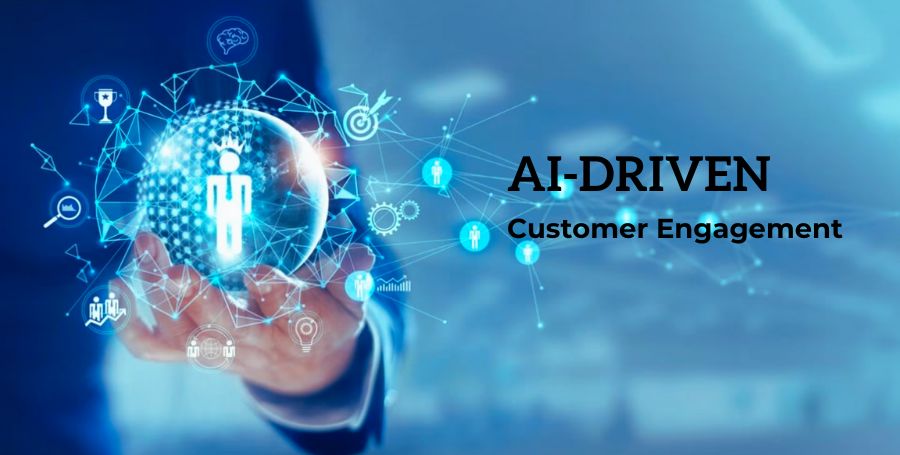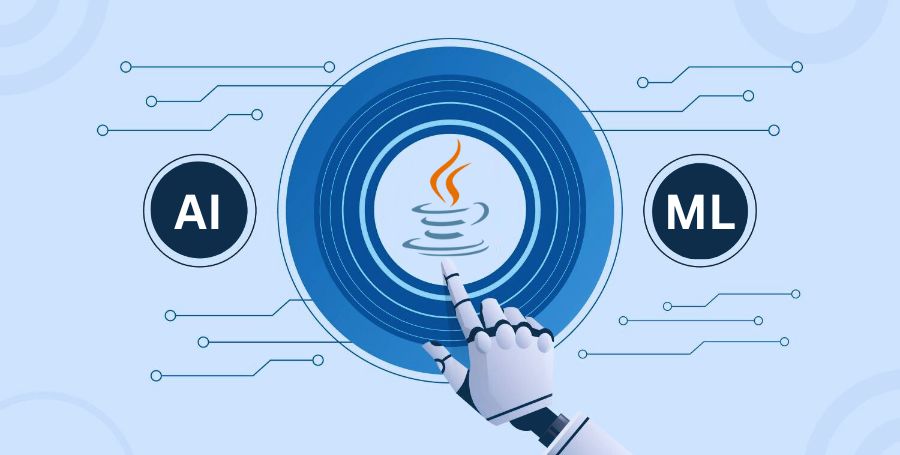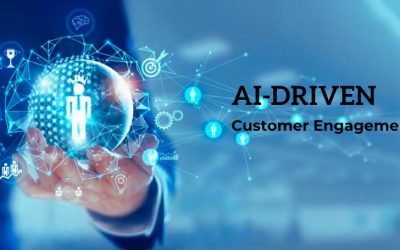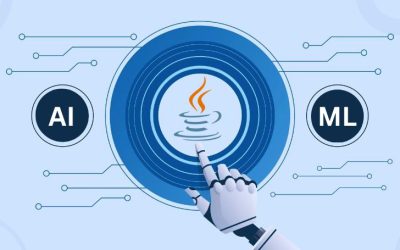Artificial intelligence (AI) has revolutionized traditional software development processes and improved the software development lifecycle’s efficiency, speed, and quality to the point where it is now an essential component of modern software development. The revolutionary impact of AI on software development approaches has ushered in a new era in software development, revolutionizing the way software is conceived, planned, built and used as technology advances.
The Integration of AI and Agile Methodology
Agile techniques, which emphasize collaboration, adaptation, and iterative development, have historically dominated the software development industry. Integrating AI with Agile frameworks has greatly enhanced the process, automating repetitive processes, optimizing resource allocation, and allowing for more accurate projections through predictive analytics. AI-powered solutions, for example, streamline agile workflows by helping with sprint planning, bottleneck identification and backlog prioritization.
DevOps and AI Synergy
Continuous Integration and Continuous Delivery (CI/CD) is largely made possible by incorporating AI into DevOps processes. Automation tools with AI capabilities improve code deployment, testing, and monitoring speed and accuracy, enabling faster problem identification and resolution. Predictive analytics powered by AI and machine learning algorithms also help with predictive maintenance, which lowers downtime and improves system reliability.
Software Development and Machine Learning
Machine learning algorithms have significantly changed the way software developers handle various tasks. The auto-complete features of Integrated Development Environments (IDEs) and other AI-based code completion and recommendation tools help developers write code more quickly and accurately. With the use of Natural Language Processing (NLP) models, requirements can be extracted from textual data, leading to more specific requirements gathering and specification.
AI’s Effects on Software Development
Better Capabilities for Making Decisions
Large-scale data analysis is accomplished by AI algorithms, which empower software development teams to make informed judgements. With the use of predictive analytics, developers may proactively address issues before they become more serious by forecasting possible hazards, more precisely estimating project deadlines, and proposing ideal solutions.
Improved Software Testing
AI-driven testing frameworks that greatly minimise the amount of manual testing are automated test generation and intelligent bug detection systems. By using past data to detect fault trends, machine learning algorithms enhance the precision and effectiveness of software testing procedures.
Personalised User Experiences
AI makes it possible to create customised software experiences by processing and analysing data about user behaviour. AI-driven software adjusts to user demands, increasing user pleasure and engagement. Examples of this include recommendation systems and user interface customization based on personal preferences.
Difficulties and Ethical Issues
Software development can produce biased results when AI systems are trained with biased data. For AI-driven software to be fair and reduce bias, meticulous data curation, algorithm transparency, and ongoing monitoring are necessary.
Security and Privacy Issues
Using AI increases software susceptibility to attacks by introducing new security flaws. Additionally, privacy concerns are raised by AI’s ability to handle sensitive user data, which calls for stronger security protocols and ethical considerations when handling user data.
Detailed Look at How AI is Changing Software Development Methods

Automating Routine Operations
AI makes it easier to automate tedious and repetitive software development jobs. Natural language processing (NLP) and machine learning methods enable AI systems to help with bug fixes, code production, and documentation. To speed up development, AI-powered code generators, for example, scan through current codebases and recommend specific code segments or complete modules.
Improving The Software Testing Process
Predictive analytics are used by AI-powered testing frameworks to detect potential problems and anticipate failure locations. Better software quality is ensured by these sophisticated systems, which mimic user behavior, perform regression testing and identify anomalies immediately. AI also makes it possible for systems to self-heal, which means they can resolve small errors and faults on their own without human assistance.
Agile Methodology and Predictive Evaluation
Large-scale datasets are analyzed by AI algorithms, which then forecast project schedules, resource allocation, and possible obstacles. This predictive analytics is compatible with agile approaches, which provide rapid adaptation, risk prediction and informed decisions by teams, ultimately optimizing the development process.
Customised User Interfaces
Software with AI capabilities can create personalized experiences by responding to user activities, preferences and interactions. Applications that use machine learning algorithms can dynamically modify their layouts, contents, and functionalities, increasing user happiness and engagement.
Enhancing the Quality and Upkeep of Code
Through pattern recognition, vulnerability identification, and suggestion generation, AI supports code review procedures. Artificial intelligence (AI) tools help maintain code quality, minimise technical debt, and guarantee adherence to coding standards and best practises by continuously learning from previous codebases.
Encouraging Cooperation and Information Exchange
By evaluating code repositories, finding areas of competence, and suggesting team members for specific jobs, AI promotes teamwork. By automatically summarising code changes, creating documentation, and easing communication across distant teams, natural language processing helps to improve documentation and knowledge sharing.
Security and Ethical Issues to Consider
Concerns about ethics and security are brought up by the impact of AI on software development. Issues related to data privacy, algorithmic bias and the ethical application of AI-powered technologies should be carefully considered. To minimize these pitfalls, AI-based decision-making systems must be transparent and accountable.
AI has Changed The Face of Many Fields Over The Past Few Decades
Artificial Intelligence (AI) has evolved in a revolutionary way over the last few decades, changing the face of many sectors. Software development has been the subject of one such significant influence. AI has not only completely changed the way software is developed, but it has also completely changed the way software development is approached.
Software development has always involved painstaking coding, debugging and testing processes, which mainly rely on human knowledge. But the advent of AI technology has redefined the traditional approaches and ushered in a new era. The use of AI in software development has resulted in the automation of many tedious and repetitive operations. By automating code production, reducing debugging methods, and optimizing algorithms, it has dramatically accelerated the development process.
A subset of artificial intelligence called machine learning (ML) algorithms has been essential in improving software development processes. Large data sets are analyzed by ML models to identify trends, which help developers anticipate potential problems or errors in code and thus enable proactive bug fixes. By reducing the likelihood of errors, this predictive ability creates software that is more reliable and effective.
Developers now have access to an intelligent assistant, which helps with code writing, debugging and performance optimization thanks to AI-powered tools and frameworks. These tools use machine learning techniques and natural language processing (NLP) to understand code requirements, make recommendations, and generate code snippets depending on the environment. It helps less experienced developers produce high-quality code while simultaneously speeding up the coding process.
The idea of DevOps is another important way that AI has changed software development methodologies. Continuous Integration and Continuous Deployment (CI/CD) are made possible by AI’s smooth integration into the DevOps lifecycle. AI-driven systems ensure faster and more dependable software releases by automating the testing, deployment, and monitoring processes. Predictive analysis of artificial intelligence by an AI consulting company helps detect potential bottlenecks and improve the software delivery pipeline.
Ideas of AI Change The Methodology of Software Development
Automated Code Generation
By eliminating repetitive processes and speeding up the development process, AI-driven technologies help developers automate code generation. Code snippets can be generated using technologies such as GPT (generative pre-trained transformer) models, which are based on natural language descriptions or patterns.
Bug Detection and Resolution
By examining trends and previous problems, AI algorithms can find faults and weaknesses in the code. They reduce development time and improve code quality by helping with debugging and anticipating potential problems.
Enhanced Testing Procedures
By automatically creating test cases, detecting edge cases and executing tests in different scenarios, AI-enabled testing solutions perform thorough and effective testing. It guarantees the software’s resilience and dependability.
Customised Development Environments
AI-driven development environments adjust to the coding preferences and preferences of certain developers. By providing code completion, real-time support and tailored recommendations, they increase coding efficiency and productivity.
NLP (Natural Language Processing) for Needs
AI and NLP make it easy to extract and interpret user needs from natural language inputs, which improves user understanding and helps refine software specifications.
Predictive Analytics for Project Management
AI helps project management by evaluating past data, predicting resource allocation, project timelines and assessing potential risks. It helps with improved decision-making and efficient use of resources.
AI simplifies Continuous Integration and Deployment (CI/CD) pipelines by automating the deployment, testing, and integration procedures. It guarantees faster and more reliable software update delivery while speeding up the release cycle.
Code restructuring and Optimisation
By finding redundant code, making recommendations for enhancements and improving efficiency, AI algorithms support code restructuring and optimization, helping to maintain code effectiveness and quality.
The AI-powered platform fosters a culture of knowledge sharing and learning by suggesting relevant resources, solutions and best practices based on project specifics. It encourages collaboration among developers.
Ethical and Secure Development
By examining code for potential biases, privacy breaches, or security flaws, AI helps to ensure ethical and secure software development, encouraging responsible and secure software practises.
Domain-Specific Solutions
AI-powered tools address specific challenges in a variety of industries, such as healthcare, finance, and automotive, by providing customized solutions and frameworks that meet domain-specific criteria.
Difficulties and Ethical Issues
Using AI in software development brings up issues with bias in algorithms, job displacement, and ethical ramifications. It is imperative that these issues be resolved in order to integrate AI responsibly into software development.
Conclusion
The development of AI has revolutionised the conception, creation, and delivery of software by bringing previously unheard-of improvements to software development processes. Products development teams can use AI-powered tools and techniques to increase productivity, shorten development cycles, make better decisions, and produce creative, user-centric products. But to make full use of AI in software development, it’s important to consider ethical issues, bias mitigation, and strong security precautions. AI integration will continue to shape and improve software development techniques as it develops, encouraging creativity and pushing the limits of what is possible in the digital world.
Software development processes are being revolutionised by AI, which automates jobs, increases productivity, improves quality, and frees up developers to concentrate on more creative and advanced problem-solving. However, for proper and long-term AI integration into software development, ethical issues and challenges must be addressed.
How software is designed, built, and maintained is being revolutionised by the evolutionary leap that is the incorporation of AI in software development processes. AI is changing software development by improving testing procedures, automating activities, forecasting results, and personalising user experiences. It is bringing in a new era of efficiency and innovation in software development.
There are difficulties with this transition since security and ethical issues demand careful thought and execution. However, AI has enormous potential benefits for software development, including the creation of strong, inventive, and user-centered software solutions in the future through the seamless collaboration of intelligent systems and human expertise.







